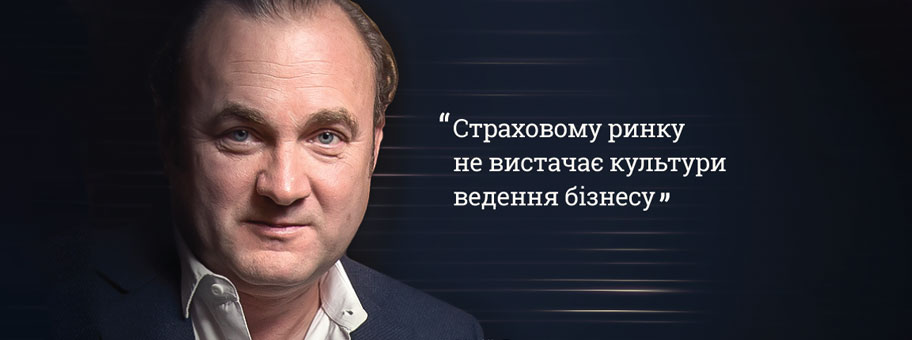ATTENTION! At 00:00 the MTIBU database will be updated. Please start concluding the contract after 00:00

11.05.2017
1661
Read the original language
The country's insurance market lacks a business culture, including e-commerce.
Last November, the research agency TNS published a report presenting data on citizens' trust in various government and public institutions. Sixty-two percent of respondents distrusted insurance companies. People distrust the institution that can help them in various critical situations. How can this situation be reversed? One way is to make insurance more technologically advanced and understandable for consumers.
By the end of this year, according to the National Commission for Financial Services, electronic compulsory motor third-party liability insurance (OSAGO) policies are expected to be available in Ukraine. This significantly simplifies life for the average car owner: they can purchase an insurance policy without leaving their computer or mobile phone. Information about the insurance purchase is immediately entered into the central database of the Motor (Transport) Insurance Bureau of Ukraine (MTIBU), and the driver's liability is already considered settled.
You'll agree, this is a completely modern, customer-oriented practice. No one today has to stand in line at the ticket office to buy a plane or train ticket. No one calls a hotel when they need to book a room—everything is done online, concert tickets are purchased online. Bills can be paid easily from a mobile phone. And when a modern person needs a "piece of paper," it indicates a system failure. Yes, today, by law, insurers are required to issue clients with a MTPL policy form, but this rudimentary practice should be discarded.
Nevertheless, the introduction of such an electronic innovation has met with colossal resistance from the insurance market. It turns out that most insurers are simply not ready to invest in IT. Why?
The main argument of insurers against the idea of switching to electronic compulsory motor third-party liability insurance (CMTPLI) is the high cost of IT development. But in reality, of the 3 billion UAH in revenue insurers receive annually from CMTPLI sales, about 1 billion UAH goes to agents. The rest goes to taxes, salaries, profits, and what's left is for claims payments. Naturally, with such a business model, it's impossible to allocate funds for IT development. But wouldn't it be better to invest in your sales channel than to feed agents?
"Insurers simply don't have enough money to pay out. That's why, in the last three years alone, more than 30 companies have left the insurance market without paying."
The insurer of the future is an IT company engaged in insurance. Five years ago, we decided to abandon the traditional paperwork used by insurers and implemented a CRM system. Since then, all insurance contracts, including MTPL, are issued from our own unified database, essentially an "electronic policy." We also have a small program that automatically uploads information about concluded contracts to the MTIBU database.
Another important argument in favor of an electronic policy is the development of an insurance culture. Drivers treat compulsory insurance like a tax. Clients don't care which company they buy their MTPL policy from, as long as it's the cheapest. This isn't just because household incomes have fallen, but also because of widespread mistrust of insurance. In the event of an accident, a driver who has honestly purchased a MTPL policy cannot be sure that the insurance company will pay compensation in full and on time. And won't he have to pay compensation out of his own pocket? Judging by thousands of complaints to the National Commission for Financial Services and the Insurance Ombudsman, insurers have been deceiving people for months, haggling with them, reducing insurance indemnities. Insurers simply don't have enough money to pay out. That's why, in the last three years alone, more than 30 companies have left the insurance market without paying—all of them were paying huge commissions to agents for selling compulsory motor vehicle liability insurance, and there weren't enough funds to pay out for accidents.
If insurance companies begin to improve their business culture and fulfilling their obligations becomes the norm, people will insure themselves beyond the mandatory types. And an electronic policy will be the first step toward a rational dialogue between the insurer and the client.
"People are not used to buying financial services online." At the same time, in other retail sectors, the volume of trade and financial transactions online is increasing. And the insurance market must become convenient for its clients."
In fact, an electronic policy offers three main advantages.
People are not accustomed to purchasing financial services online. At the same time, in other retail sectors, the volume of trade and financial transactions online is increasing. The insurance market must become more convenient for its clients. Today, we must decide whether the insurance market will find the strength to meet their clients halfway. Insurers will have to abandon the shadow economy with unjustified agency commissions and the sale of "lost" and counterfeit forms; each insurer will have to build an IT infrastructure. The introduction of electronic policies will demonstrate that the market is stable, that insurers are investing in their business, and that this isn't a one-day business. It's important that the National Commission for Financial Services doesn't back down and keeps its word to ensure that electronic OSAGO policies become a reality in 2017.
Source: Focus.ua
Author: Yuriy Yavtushenko (shareholder of Salamandra-Ukraine Insurance Company)